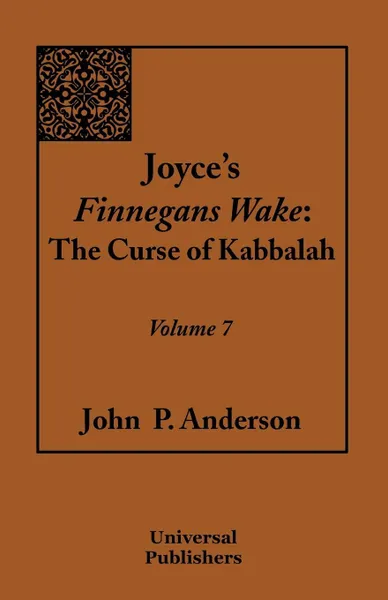Joyce's Finnegans Wake. The Curse of Kabbalah Volume 7 8+
Автор: John P. Anderson
2013
512 страниц
Категория: Развитие ребенка
ISBN: 9781612331898
Язык: Английский
🔖 This seventh in a series continues this non-academic author's ground-breaking word-by-word analysis of James Joyce's Finnegans Wake. This volume covers chapters 2.4, 3.1 and 3.2 with the intent to explore them as art objects.In Chapter 2.4 spirit imperialists attack love. Love, particularly the spontaneous kind, is an outpost of freedom and more possibilities. That outpost is a threat to the status quo regime of the imperialists and puts its central committee on alert. The imperialist control effort focuses on the two main sources of spontaneous love, the natural nurturing tendency of human females and the giving spirit of Jesus.One pure expression of this kind of control is the arranged marriage, an institution that often serves political interests. In arranged marriages, control trumps love. The arranged part of the marriage is usually the female. The arranged marriage makes spontaneous love illicit. This chapter presents love suffering from control in the context of two arranged marriages: Joyce's version of Isolde to King Mark in Tristan and Isolde ["T&I"] and Jesus to the church in the Gospels. The result in both cases is the same: love fused to death and a relationship barren of new offspring.The spirit mates in this chapter are King Mark from T&I and Evangelist Mark. The Book of Mark as edited reduced the independent and loving Christ to the "suffering servant," and Tristan died at the Cliff of Penmark, just as the real Christ died a...
Мнения
